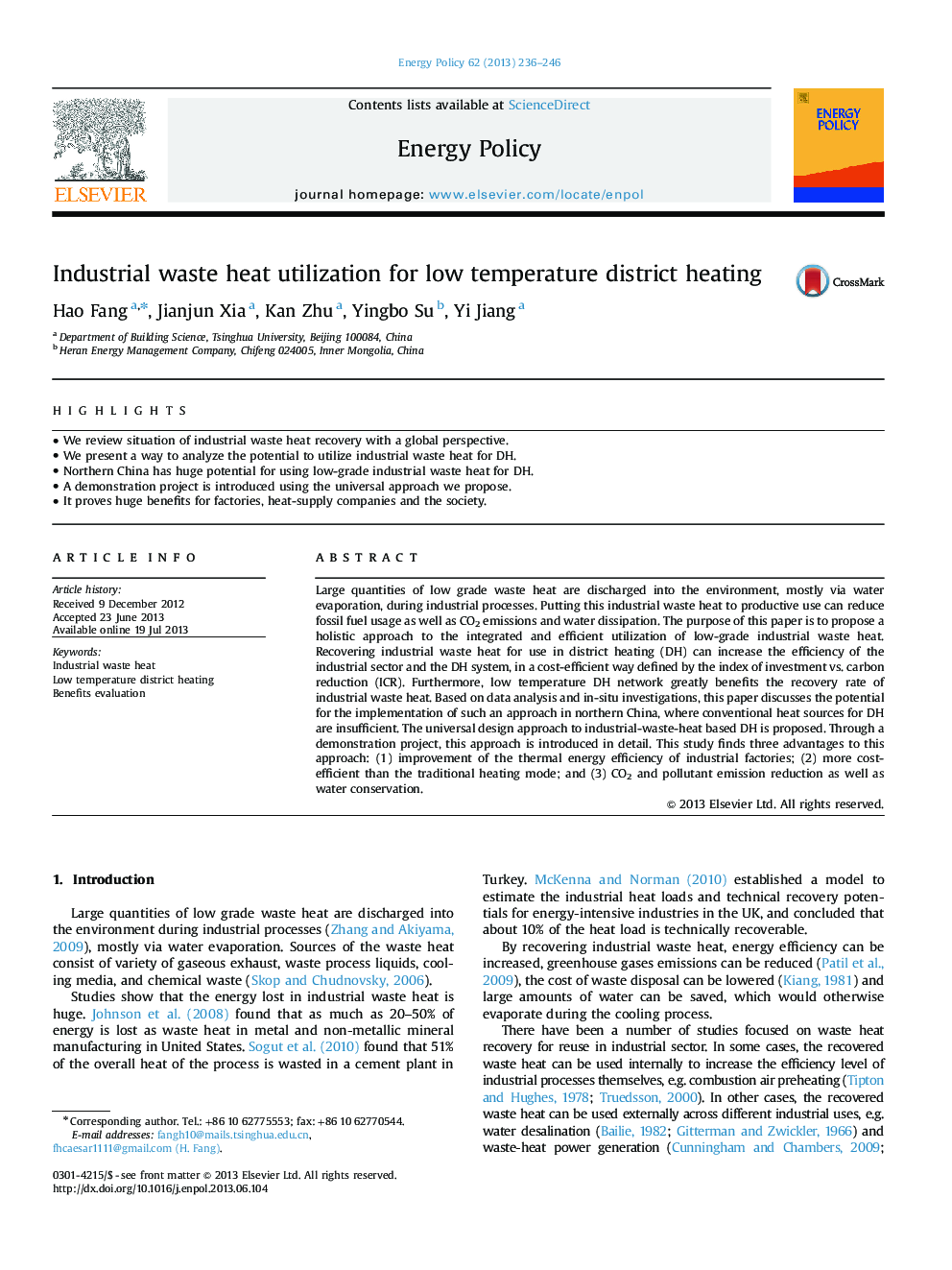| Article ID | Journal | Published Year | Pages | File Type |
|---|---|---|---|---|
| 7403857 | Energy Policy | 2013 | 11 Pages |
Abstract
Large quantities of low grade waste heat are discharged into the environment, mostly via water evaporation, during industrial processes. Putting this industrial waste heat to productive use can reduce fossil fuel usage as well as CO2 emissions and water dissipation. The purpose of this paper is to propose a holistic approach to the integrated and efficient utilization of low-grade industrial waste heat. Recovering industrial waste heat for use in district heating (DH) can increase the efficiency of the industrial sector and the DH system, in a cost-efficient way defined by the index of investment vs. carbon reduction (ICR). Furthermore, low temperature DH network greatly benefits the recovery rate of industrial waste heat. Based on data analysis and in-situ investigations, this paper discusses the potential for the implementation of such an approach in northern China, where conventional heat sources for DH are insufficient. The universal design approach to industrial-waste-heat based DH is proposed. Through a demonstration project, this approach is introduced in detail. This study finds three advantages to this approach: (1) improvement of the thermal energy efficiency of industrial factories; (2) more cost-efficient than the traditional heating mode; and (3) CO2 and pollutant emission reduction as well as water conservation.
Related Topics
Physical Sciences and Engineering
Energy
Energy Engineering and Power Technology
Authors
Hao Fang, Jianjun Xia, Kan Zhu, Yingbo Su, Yi Jiang,
